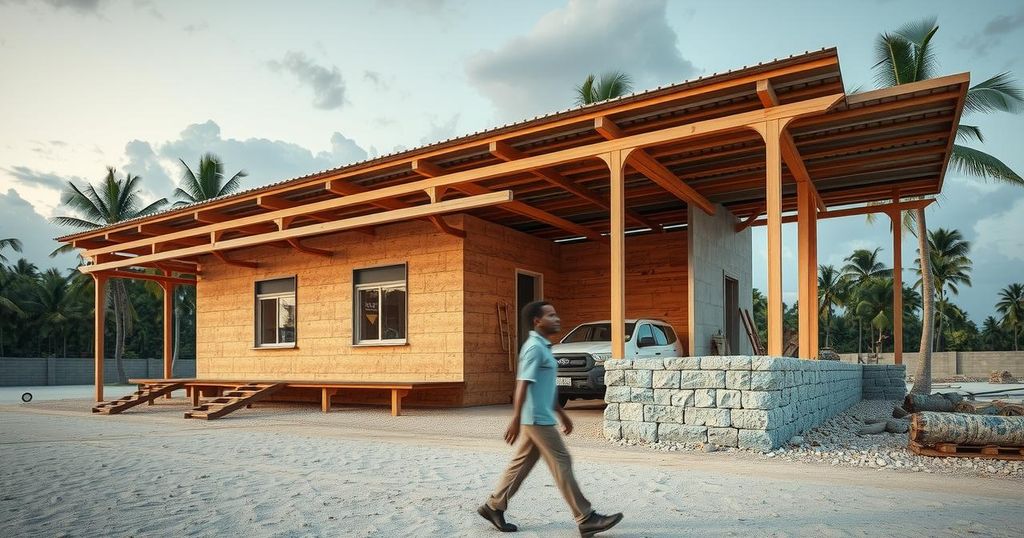Mozambique Initiates Shelter Construction for Cyclone Chido Victims

Mozambique has commenced building shelters for Cyclone Chido victims after the storm caused 70 fatalities and injured 600 people. Minister Silvino Moreno pledges improved construction, as existing homes were largely destroyed. With UNICEF’s support, resources are mobilized to assist the affected population amidst ongoing challenges, including a cholera outbreak.
Mozambique has initiated the construction of shelter for those affected by Cyclone Chido, which ravaged the northern regions of the country on Sunday, resulting in the loss of at least 70 lives and injuries to 600 individuals. During a visit to the devastated areas, Trade and Industry Minister Silvino Moreno emphasized the government’s commitment to aiding the victims and highlighted the involvement of international partners in the relief efforts.
Minister Moreno articulated that the immediate focus is on building shelters utilizing durable materials, as nearly all residences in the afflicted regions were poorly constructed from mud and reeds, which failed to withstand the cyclone’s force. It is apparent that improved construction practices and training are imperative for the local population.
Prior to its landfall in Mozambique, Cyclone Chido inflicted significant harm on Mayotte, a group of French islands, resulting in casualties and extensive infrastructural damage. In southern Malawi, the cyclone similarly wreaked havoc, causing destruction to homes and public infrastructure from powerful winds and heavy rains.
The Mozambique meteorological agency has warned residents to prepare for additional storms as the rainy season progresses over the next three months. UNICEF has indicated that around 174,000 individuals have been impacted nationwide, with further assessments likely to increase this number. Moreover, thousands of classrooms and 20 healthcare facilities have sustained damage, particularly in Cabo Delgado and Niassa provinces, which may exacerbate the ongoing cholera outbreak in the region.
Michael Chimedza, the head of UNICEF’s field office in Zambezia province, noted that his organization has mobilized resources to assist 50,000 individuals in immediate need. A significant number of families have been left without electricity, and vital infrastructures, such as roads and water supply systems, have suffered damage, complicating the ongoing humanitarian response.
This article discusses Mozambique’s response to Cyclone Chido, a devastating storm that struck the northern regions of the country. The cyclone resulted in significant fatalities, injuries, and destruction of infrastructure. The government’s efforts, with support from international partners, aim to rebuild resilient shelters and address the pressing needs of the victims. The background of the article also touches upon the cyclone’s prior impact on Mayotte and Malawi, as well as the ongoing challenges the region faces, including a cholera outbreak amid the disaster relief efforts.
In summary, Mozambique is taking urgent measures to provide shelter for Cyclone Chido victims, focusing on building with resilient materials to prevent future devastation. The cyclone has had far-reaching consequences, impacting thousands of lives and critical infrastructure. Continued support from international partners and enhanced local training are crucial as the country prepares for upcoming storms and confronts existing public health crises.
Original Source: www.voanews.com






